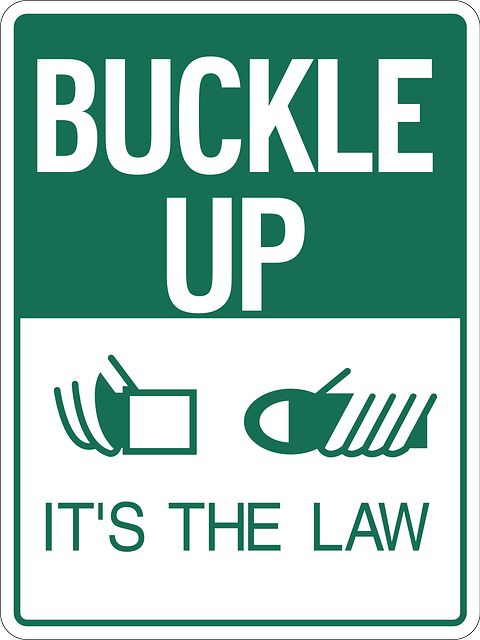Public corruption charges in healthcare, often involving bribery and fraud, require expert legal guidance due to complex regulatory compliance issues. Skilled attorneys navigate these challenges, protecting clients' rights and ensuring industry integrity. Recent scandals have led to increased scrutiny, with severe penalties for non-compliance. Organizations seek Expert Advice on Healthcare Regulatory Compliance to establish robust internal controls, ethical practices, and transparent reporting, mitigating risks of indictment and promoting sector-wide accountability. High-profile cases highlight the importance of compliance, resulting in substantial fines and organizational changes. Adhering to stringent standards is crucial for maintaining corporate integrity and public trust.
“Uncovering the intricate web of public corruption charges within the healthcare industry is essential for navigating legal complexities and maintaining ethical standards. This comprehensive article offers expert advice on healthcare regulatory compliance, delving into the definition and legal implications of public corruption. We explore the significant impact of industry involvement in corrupt practices and present best practices to ensure adherence to laws. Through insightful case studies, we illuminate lessons from high-profile healthcare corruption cases, providing a roadmap for organizations seeking to avoid legal scrutiny.”
- Understanding Public Corruption Charges: Definition and Legal Implications
- The Impact of Healthcare Industry Involvement in Corrupt Practices
- Strategies for Compliance: Best Practices to Avoid Legal Scrutiny
- Case Studies: Lessons from High-Profile Healthcare Corruption Cases
Understanding Public Corruption Charges: Definition and Legal Implications

Public Corruption Charges refer to allegations of illicit behavior by individuals in positions of public authority, involving abuse of power for personal gain. This can include activities like bribery, fraud, extortion, or misusing public funds. Understanding these charges is crucial, especially in the context of white collar defense and general criminal defense. Experts in healthcare regulatory compliance often find themselves at the intersection of these issues, as many corruption cases involve complex financial transactions and industry-specific regulations.
When facing public corruption accusations, it’s vital to seek expert advice. A skilled attorney specializing in white collar defense can help navigate the legal complexities and protect a client’s rights. These professionals understand the intricate web of laws and regulations that govern public officials and businesses, ensuring that strategies are tailored to the specific circumstances of each case. For his clients, this means achieving the best possible outcome while upholding integrity and accountability in public life.
The Impact of Healthcare Industry Involvement in Corrupt Practices

In recent years, the healthcare industry has faced increasing scrutiny for its involvement in public corruption. Practices such as bribery, kickbacks, and fraud have led to significant legal consequences for various entities, including pharmaceutical companies, medical device manufacturers, and healthcare providers. The impact of these corrupt practices extends far beyond financial losses; they erode public trust, hinder access to quality care, and undermine the integrity of the industry itself.
Expert advice on healthcare regulatory compliance emphasizes the importance of stringent internal controls, transparent reporting, and ethical business conduct. Organizations must adopt robust anti-corruption policies and implement effective monitoring systems to detect and prevent any unethical behavior. A complete dismissal of all charges is rare, as jury trials have shown that holding individuals and entities accountable for their actions is crucial for fostering a culture of integrity within the healthcare sector. Moreover, philanthropic and political communities play a vital role in supporting efforts to combat corruption by advocating for stricter regulations and promoting ethical practices throughout the industry.
Strategies for Compliance: Best Practices to Avoid Legal Scrutiny

In navigating the complex landscape of public corruption charges, organizations often turn to expert advice on healthcare regulatory compliance to achieve extraordinary results and avoid indictment. The first step is to establish robust internal controls and procedures that are transparent and well-documented. This includes implementing stringent data management practices, ensuring secure record-keeping, and regularly reviewing financial transactions for any anomalies. By fostering a culture of ethics and accountability, organizations can significantly reduce the risk of legal scrutiny.
Additionally, staying informed about evolving regulatory requirements is paramount. Engaging with industry experts and participating in continuing education programs allows organizations to anticipate changes and adapt their practices accordingly. Regular audits and compliance assessments help identify weaknesses and provide opportunities for improvement. Moreover, maintaining open lines of communication with legal advisors specializing in general criminal defense can offer valuable insights into mitigating risks and ensuring adherence to the law.
Case Studies: Lessons from High-Profile Healthcare Corruption Cases

In recent years, high-profile healthcare corruption cases have garnered significant attention, offering valuable lessons for experts in regulatory compliance. These high-stakes cases involving pharmaceutical companies and healthcare providers highlight the importance of adhering to stringent ethical standards and legal frameworks. For instance, investigations into price-fixing schemes and kickback arrangements not only resulted in substantial fines but also led to organizational restructuring and changes in corporate culture.
By studying these cases, organizations can gain expert advice on healthcare regulatory compliance. Understanding the risks associated with non-compliance is crucial for both corporate and individual clients. Organizations with an unprecedented track record of ethical practices have proven to be more resilient in navigating regulatory challenges, ensuring long-term sustainability and public trust.
In navigating the complex landscape of public corruption charges, especially within the healthcare industry, understanding legal implications and adopting best practices are paramount. This article has provided expert advice on healthcare regulatory compliance, highlighting the definition and impact of public corruption, offering strategies for avoidance, and sharing insights from significant case studies. By learning from these experiences, organizations can foster a culture of integrity, ensure adherence to regulations, and mitigate risks associated with corrupt practices.






